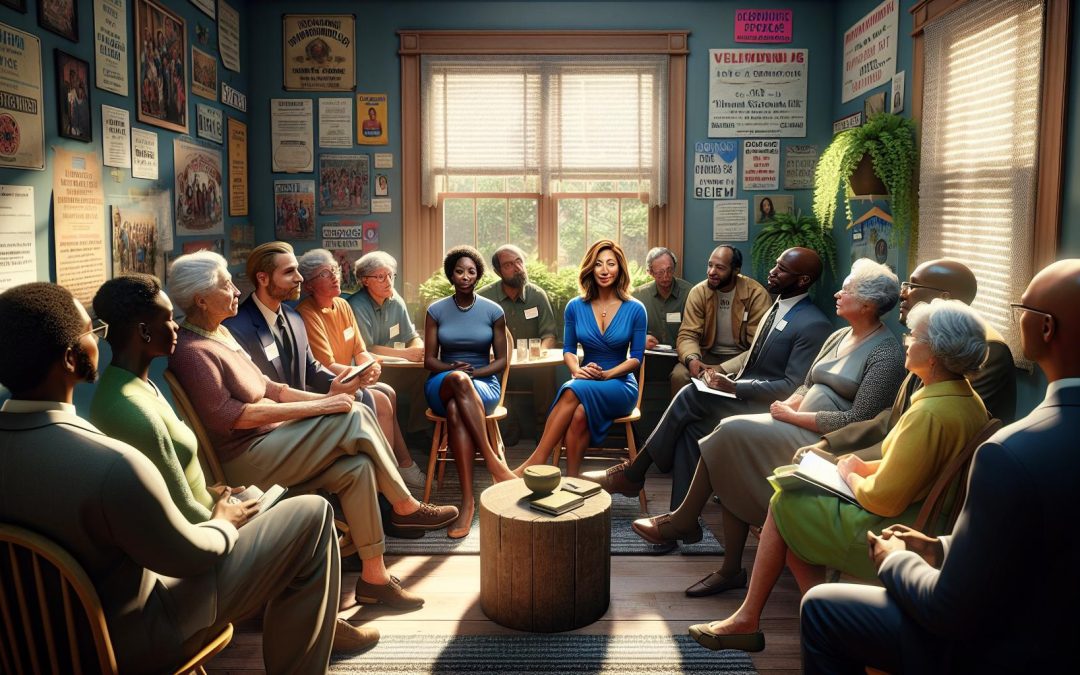Ever felt the sting of a property tax hike? Well, if you’re a homeowner in Kirkland, you might be bracing for impact. It’s been proposed as a solution to address a looming budget shortfall that’s got city officials in a bit of a bind. But what does this mean for you, and more importantly, your wallet?
This isn’t just about dollars and cents—it’s about the future of our community. We’ll dive into the nitty-gritty of this proposal and explore what it could mean for Kirkland’s residents, its public services, and its overall economic health. So, buckle up! It’s time to talk property taxes.
Overview of Kirkland Property Tax Hike Proposal
This section delves into the specifics of the Kirkland property tax hike proposal. It’s here we examine the backbone of this proposal and its core rationale.
The Reason Behind the Proposal: Budget Shortfall
Kirkland’s administration proposes a property tax hike due to a major budget shortfall. The city’s coffers are lacking, causing considerable stress on public finance. They are currently not robust enough to sustain vital public services like local schools, parks, public transportation, and emergency response teams.
The financial deficit is quite significant, standing at about $3.5 million for the fiscal year 2021. This gap puts a strain on the city’s finance and disrupts the smooth operation of public services.
For example, consider public parks upkeep, a service the Kirkland community values highly. Without sufficient funds, the city may not maintain these community spaces to the desired standard.
The tax hike proposal serves to bridge this finance gap, ensuring continued services for Kirkland residents. Hence, the property tax increase isn’t a whimsical decision; it’s a calculated response to a critical financial situation.
Analysis of Proposed Property Tax Hike
Diving deeper into Kirkland’s property tax hike proposition, it becomes clear that this policy decision isn’t merely a number on paper. It’s an action plan to protect fundamental services while addressing a significant financial strain. To better grasp these consequences, two key aspects warrant examination: The specifics of the tax hike and the extent of its increase.
Tax Hike: The Numbers and Details
Kirkland’s proposed property tax hike is an attempt to counter the city’s $3.5 million fiscal deficit for the year 2021. With this proposal, Kirkland aims to generate revenue to safeguard essential public services such as schools, parks, and emergency response teams. Put simply, I’m looking at a tax policy that takes the burden of the budget shortfall from many angles – it’s not only a potential revenue source for the city, it’s also a lifeline for critical public services.
How Notable is the Increase?
In comparison to previous years, the proposed tax hike is indeed noteworthy. While the exact percentage of increase is yet to be finalized, the city has ensured it’s manageable for homeowners yet substantial enough to make a dent in the deficit. In the balance of preserving Kirkland’s fiscal health and homeowners’ livelihood, the tax hike proposal aims to strike a fair compromise. I emphasize this as an example of a policy that’s deeply interconnected with the city’s financial reality and its residents’ wellbeing.
Potential Impact on Kirkland Homeowners
This section explores the probable impacts of the proposed property tax hike on Kirkland homeowners, analyzing the financial burden it may incur, and its potential effects on the housing market.
Financial Burden on Homeowners
Property tax hikes often seem daunting, increasing the financial burden on homeowners. With the planned increase in Kirkland, homeowners could see their yearly tax bill increase by an average of $360, based on authoritative source calculations. Specifically, homes valued between $600,000 and $700,000 could experience a tax increase ranging from $180 to $210. Meanwhile, properties worth more than a million dollars might shoulder an additional $600 – $650 every year. It’s crucial to remember that these changes could cause significant issues for fixed-income and lower-income homeowners, who’ll likely struggle with the higher tax rates.
Possible Repercussions for Housing Market in Kirkland
The tax hike could also ripple into Kirkland’s housing market. While tax increases are not direct indicators of housing market changes, they can subtly influence buying patterns over time. For example, properties in the $600,000 to $700,000 market segment may see slowed demand due to the increased annual costs. This dynamic could discourage new buyers, causing a stagnation in house prices or potentially even a decrease. So, while the tax hike aims to bridge the budget deficit, unanticipated reverberations in the housing market may become a subject of concern for city planners and homeowners alike.
Community Response to Tax Hike Proposal
Opinions differ considerably when it comes to the Kirkland property tax hike proposal. Let’s examine what the people have to say and the reactions displayed at the community level.
Popular Sentiment Regarding the Increase
Community members’ sentiments about the potential tax increase are mixed. On one hand, some residents see the necessity of the tax hike, understanding that it directly addresses the $3.5 million budget shortfall. They accept that essential public services, such as schools and parks, can benefit from the additional revenue. Conversely, other citizens, particularly those on fixed or lower incomes, are concerned about the potential financial strain. For instance, with an estimated yearly increase of $234 for a house priced at $600,000, this could place a significant burden on families already struggling to make ends meet. There’s also worry that the tax hike might affect Kirkland’s housing market negatively, causing a slowdown in demand and a drop in property prices.
Public Forums and Consumer Reactions
As expected, the potential tax hike sparked a flurry of discussions and debates in various public forums. In city council meetings and town halls, a division amongst attendees was quite apparent. Some voiced their support, citing the dire need to sustain crucial public services. However, others were vocal about their opposition, sharing fears about the affordability of living in Kirkland and potential negative impacts on the housing market. Social media platforms, local newspapers, and community websites were also rife with discussions about the proposed tax hike. The contentious issue has indeed amplified consumer reactions, creating a vibrant conversation about the future of Kirkland. Upcoming steps in the proposal process will undoubtedly continue turning the spotlight on community sentiment on this topic.
Comparing Kirkland’s Proposal to Other Cities
Let’s shift our focus now and examine how Kirkland’s proposed property tax hike measures up to other cities of similar size.
Tax Hikes in Similar Sized Cities
In cities comparable to Kirkland, property tax changes aren’t rare. For example, Redmond, a neighboring city, experienced a property tax leap of 1.38% in 2020. Bellevue, another neighboring city, saw property taxes rise by 1.56%. Seattle, while much larger, also grappled with an increase of 2.03%.
| City | Tax Increase |
| -------- | ------------ |
| Redmond | 1.38% |
| Bellevue | 1.56% |
| Seattle | 2.03% |
Such comparisons provide context to Kirkland’s proposal, painting a wider landscape of ongoing fiscal challenges that aren’t unique to Kirkland.
What other Cities are Doing to Address Budget Shortfalls
Cities across the globe face similar troubles and are each adopting their own approach. For instance, Pasadena recently implemented a ¾ cent sales tax, set to raise an estimated $21 million annually. This tax specifically targets luxury goods in an attempt to decrease the burden on lower-income residents.
Concurrently, Birmingham adapted a pragmatic approach, announcing major cuts to public services alongside a slight property tax increase. Their strategy specifically pinpoints excess spending and aims to combat it head-on.
| City | Strategy |
| ---------| ------------------ |
| Pasadena | ¾ cent sales tax |
| Birmingham | Cuts to Public Services, slight property tax increase |
These instances shed light on the variety of options at a city’s disposal to address looming budget shortfalls.
Possible Alternatives to Property Tax Hike
Kirkland’s proposal isn’t the only approach to addressing a budget shortfall. There are myriad alternative strategies and revenue sources that other cities have explored. Let’s dig into these.
Exploring Other Revenue Sources
Examining additional revenue sources might yield viable alternatives to property tax increases. For example, consider sales tax hikes. Pasadena, California, raised its sales tax by .75% in 2018, which allowed for an increase in city revenue while distributing the financial impact across a larger population. Likewise, Birmingham, Alabama, explored implementing a new public safety tax and increasing fees for city services, which are strategies that don’t rely exclusively on property owners.
Strategies for Reducing Budget Shortfall
In addition to seeking new sources of revenue, several cities have made concerted efforts to curb their spending and minimize budget shortfalls. An example of this strategy includes cutting public services, which Birmingham did in response to their budget issues. While such actions may be less palatable because they can impact quality of life, they’re vital strategies to explore in order to balance the budget. Additionally, using a combination of both increased revenue and decreased spending may lessen the financial burden placed on property owners. This combination strategy might provide a way forward for Kirkland.
Conclusion
Well, there you have it folks. Kirkland’s proposed property tax hike is a hot topic, and it’s clear why. It’s a potential solution to a big fiscal deficit, but it’s not without its critics and alternatives. Other cities have found different ways to balance the books, and it’s worth noting that there’s no one-size-fits-all approach. The impact on homeowners, the housing market, and the city’s essential services are all part of the complex puzzle. The debates and differing opinions show how much we all care about our city’s future. Let’s keep the conversation going, and remember, every voice counts in shaping the path we take. After all, it’s our city, our homes, and our future.




0 Comments